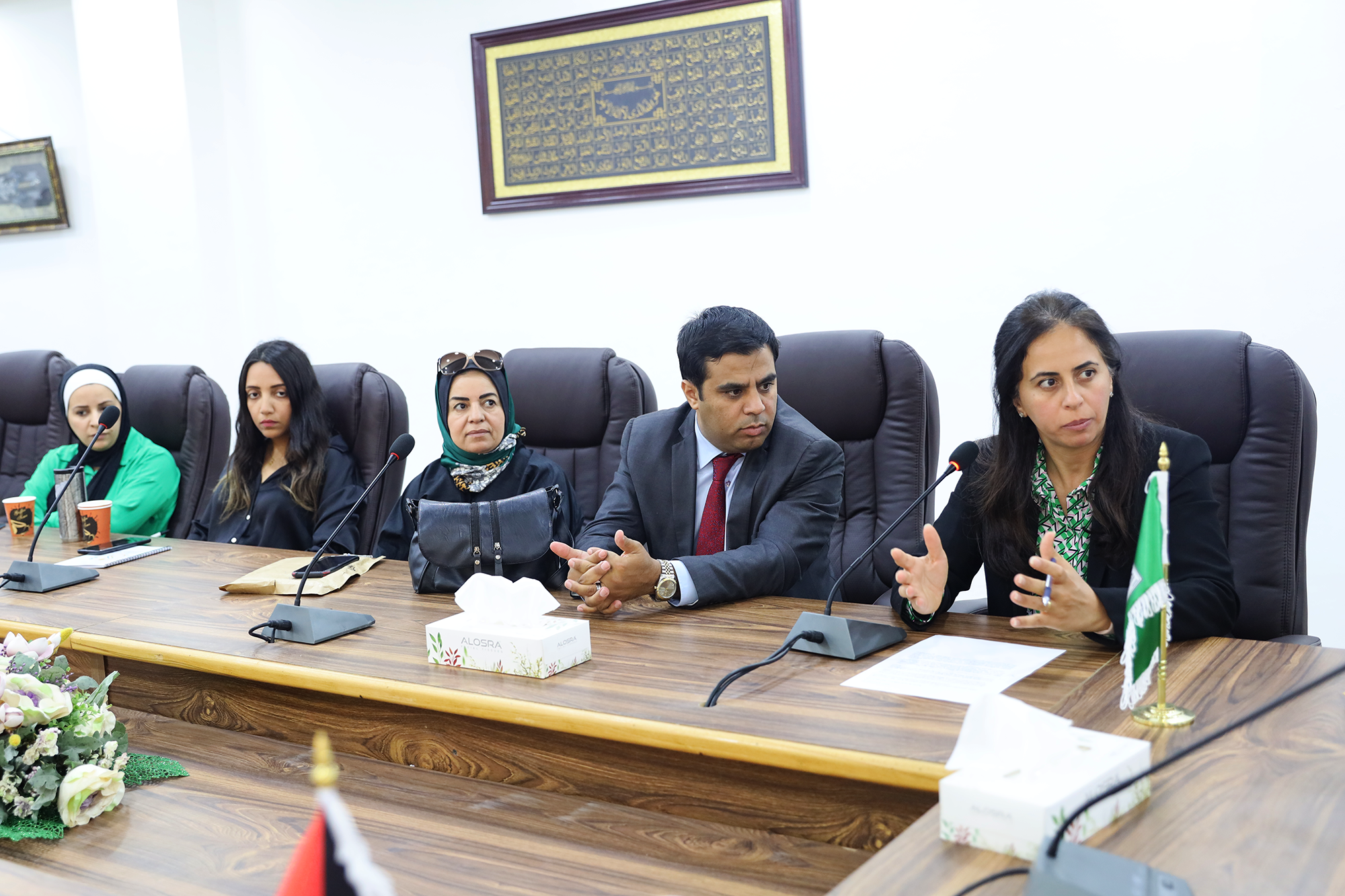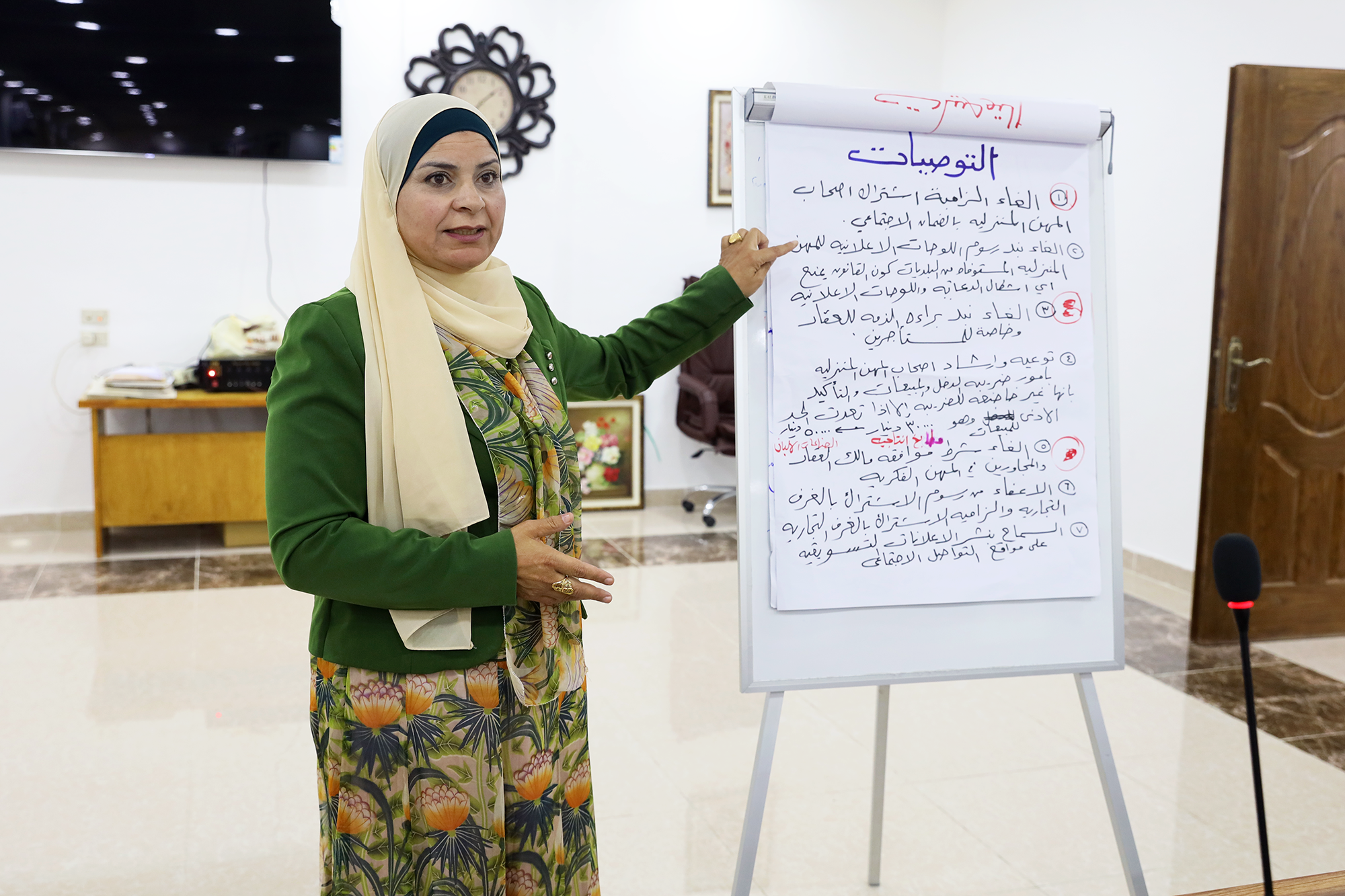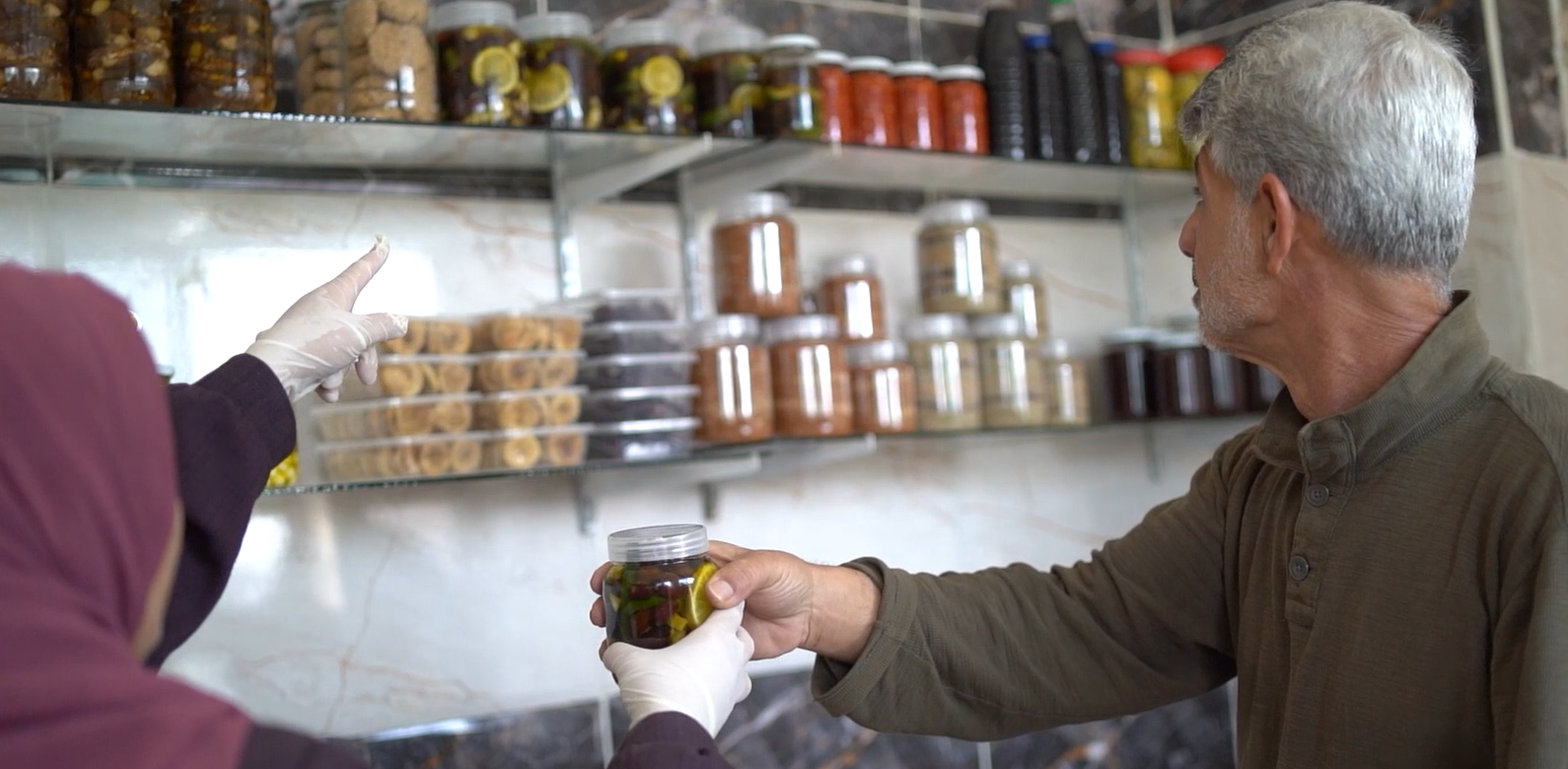Across Jordan, entrepreneurs are making a living from home. Whether they are Syrian refugees who have left careers behind or rural Jordanians who have little access to livelihoods, opening their own businesses is a way to make an income with the knowledge and resources available to them.
Smart DESERT, implemented by a consortium of partners led by IUCN and funded by the French Development Agency, helped home-based business (also called microenterprise) owners access the formal economy.
Starting in 2021, Blumont supported 230 business owners to learn essential skills like accounting, marketing, and management through Smart DESERT. The program also provided participants with useful equipment and helped them navigate fees and apply for licenses to operate legally.
Abeer is an entrepreneur who sells homemade food products in Jordan. For so long, she worked to make ends meet by preparing food for sale from her home. Formalizing and licensing her business seemed out of reach. She felt like accessing the market as a formal business was a pipedream until she applied for support from Smart DESERT and went through the process to obtain a license.
“The license helped us to expand to new markets, bazaars, and stores, and allowed us to display our products without concern since I now have approval from the health department,” said Abeer.
Smart DESERT helped participants prepare for the license and formalization processes by organizing sessions with Lawyers Without Borders, a Jordanian legal non-profit organization. The program also covered the business owners’ licensing fees, which can be inhibitive.

Smart DESERT organized three workshops (in Mafraq, Jerash, and Zarqa) to discuss updating the business licensing process directly with local officials in Jordan.
Over the span of the Smart DESERT program, Blumont and Lawyers Without Borders gathered home-based business owners’ feedback on the challenges of licensing and formalization. The range of challenges, they said, included fees; confusing paperwork processes; multiple office visits (often to different locations); intimidating and expensive inspections and tests; and more. Even figuring out terminology across different government offices could be confusing, they shared. Better coordination among local offices could make the processes more streamlined, faster, and easier.
In response to feedback from business owners, Smart DESERT took a step further, working to simplify the licensing process for future Jordanian entrepreneurs. Smart DESERT and Lawyers Without Borders hosted three workshops (in Mafraq, Jerash, and Zarqa) to discuss updating the process directly with local officials.

Smart DESERT participants’ feedback on the licensing process was the main topic at three workshops hosted with local officials.
Lana Al-Maani, Blumont’s program manager for Smart DESERT, said that the goal of the sessions was “to discuss the difficulties and challenges facing home-based business owners in terms of licensing, and to present these recommendations to the appropriate officials for adoption.”
Each three-day training resulted in a list of recommendations to make business licensing more accessible. The list included, “creating one window [at municipality offices] for home-based business licensing and not having multiple ones; reducing the fees collected from project owners; unifying the purposes of licensing in industry and trade; and exempting project owners from subscription fees in the Social Security Institution,” said Al-Maani.
The recommendations list also addressed costly marketing fees and tax requirements that many entrepreneurs said they could not afford.
A municipality official who attended a workshop, Iman Al-Qar’an, said, “A number of project owners came to the municipality and wanted to obtain a professional license, but they went and did not return due to the multiple procedures that were required of them.”

Abeer, left, is now able to support her family with the income she earns from her licensed food products business.
Keeping local policies up-to-date and accessible can lead to more businesses registering and joining the economy. For entrepreneurs like Abeer who support their whole family with their home-based businesses, this could be life-changing.
Abeer attested to the changes she has experienced since receiving Smart DESERT support. “After I licensed my home business, my profits increased by approximately 70 percent and it became a fixed income,” she said.



